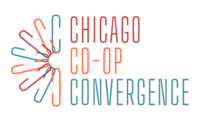Hacking Traditional Capitalist Financing Tools for Rapid Cooperative Growth
We can use traditional and emerging capitalist tools to rapidly grow cooperatives.
Notes
Termaine embraced the capitalist economy as he worked for a company that invests in fish farming. This work changed the way he looked at wealth and business in America. He is business trained and feels our primary weakness, as a society, is money
A utopia outside of capitalism is possible, but how do we use the tools that exist now to make our utopia?
- We can use the tools designed for capitalists for our own benefit. For example
- Uber: capitalist model
- The capitalist modes of production are naturally exploitative. The worker makes a certain amount of money, therefore they’re worth a certain amount of money—this is arbitrary
- Startup ecosystem: How do these startups fundraise? Venture capitalists/angel investors It takes thousands of venture capitalists to startup a company like Uber
- Capitalists have taken the model of cooperation and made it their own—they’re cooperating better than we are, for instance Crowdfunding (Kickstarter, Indigogo, etc.)
- Started by capitalists
- This is one avenue in which people are willing to donate for a cause without the expectations of an equity investment
- We should be using this to build our cooperatives
- Uber: capitalist model
Profit in the traditional sense of the word is extractive
- It always extracts value from somewhere
- How can a for profit businesses be for the community when they’re naturally extractive? These businesses must undervalue workers
- Profit can be problematic no matter what system we’re in
- But, where does the profit go? Back to the community or in the hands of investors?
- It’s okay to make money—it’s a common motivator among all of us
- Nobody wants to be poor
- Profits distributed back to the community are, overall, beneficial
What is the end game?
- More cooperatives operating in the US?
- Stop looking at specifics and focus on the end goal Until we live in a world outside of capitalism, we have to build on top of it
- Mainstreet Employee Ownership Act
- Now, employees can use the company as collateral instead of Employee Stock Ownership Plan (ESOP). ESOPs are governed by retirement law
- Better financing: ESOPs expensive
- Not many businesses are funded by banks
- Those that are funded by banks have a set process
- Profitable businesses are typically easier to acquire loans for (conversion funding) Can get a loan from a bank to buy an existing company and control all of the shares. As loans get paid back, shares go back to the employees
- Cooperatives are less risky than capitalist models, What does this mean for cooperatives?
- Cooperatives will have access to the same funding that small businesses have access to
- Same loan guarantees

